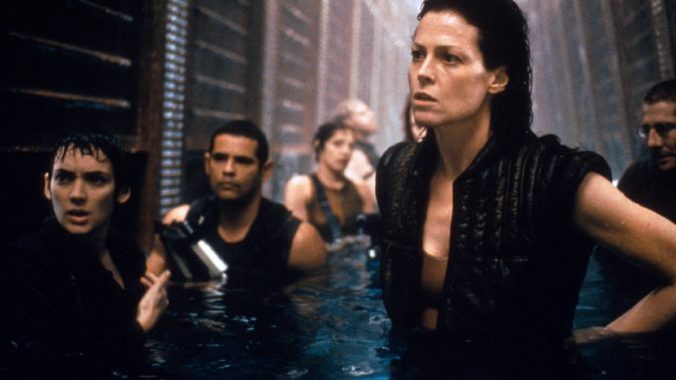If You Liked Halloween Ends, You Owe It to Yourself to Revisit Alien Resurrection

In 2005, Alien Resurrection writer Joss Whedon made headlines when he spilled some honest thoughts on the final film versus his scripted version of the story in an interview with Bullz-Eye. In those days, Whedon was still a nerd folk hero, the guy who brought us Buffy and Angel and Firefly but hadn’t yet made the leap to megablockbusters with The Avengers. He was viewed widely as a kind of nerd property whisperer, a guy who had answers for how to crack a great many stories, and he had a track record to back that up. So when he shed some light on why he thought Resurrection didn’t work as well as certain other Alien films, people listened.
The problem, according to Whedon, wasn’t that the movie director Jean-Pierre Jeunet made was dramatically different in structure from his script. The problem was…well, literally everything else:
Uh…you know, it wasn’t a question of doing everything differently, although they changed the ending, it was mostly a matter of doing everything wrong. They said the lines…mostly…but they said them all wrong. And they cast it wrong. And they designed it wrong. And they scored it wrong. They did everything wrong that they could possibly do. There’s actually a fascinating lesson in filmmaking, because everything that they did reflects back to the script or looks like something from the script, and people assume that, if I hated it, then they’d changed the script…but it wasn’t so much that they’d changed the script; it’s that they just executed it in such a ghastly fashion as to render it almost unwatchable.
Whedon is, of course, entitled to his opinion, particularly when his name is on the movie as its screenwriter and therefore, as he noted, people tend to assume certain things about his involvement, or lack thereof, in the final product. But looking at Resurrection now, 25 years after it became the fourth film in the still-growing Alien saga, it’s hard to square his reading of the film with my own. It’s not that I think Whedon’s script was the actual problem with the film—on the contrary, there are some really cool ideas baked in there, some of which read like a proto-Firefly assemblage of space pirate weirdness—but that, after all this time, all the elements he took issue with actually feel like the best things about this odd, ambitious franchise revamp.
Jeunet’s choices for design and casting, and the cast’s own choices for their motley crew of characters, feel remarkably energetic a quarter century later, particularly when compared to the more dour tones of Alien 3 (which certainly has its own passionate defenders and is by no means as bad as many people claim). Indeed, at a time when genre franchises from Halloween to Predator to Hellraiser are getting their own revamps to varying degrees of success, certain things about Resurrection read now as positively prescient.
-

-

-

-

-

-

-

-

-

-

-

-

-

-

-

-

-

-

-

-

-

-

-

-

-

-

-

-

-

-

-

-

-

-

-

-

-

-

-

-








































